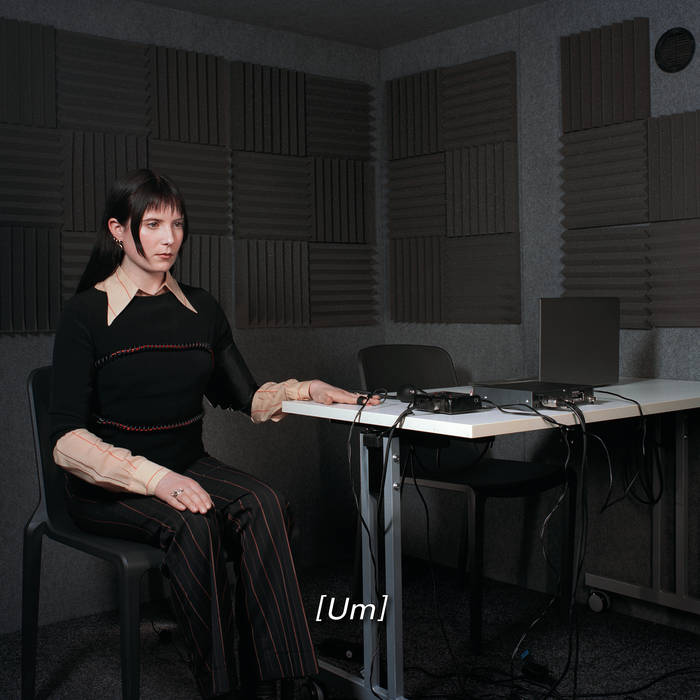Martha Skye Murphy’s debut album has been a long time in coming even if she’s still in her twenties. Collaborations with Squid and Maxwell Stirling are in the recent and distant past, and most famously there’s an association with Nick Cave that goes back to her singing over the opening credits of John Hillcoat’s The Proposition as a nine-year-old. South London-born Murphy also later performed backing vocals on Push The Sky Away, and has apparently been mentored by the Bad Seeds leader ever since Hillcoat’s 2005 Australian western.
This information is mainly relevant because of how nuanced and accomplished her debut album is. Um was not created in a vacuum and Murphy does not project the callowness of a debutante or arrive half-formed exhibiting potential. It’s a record made by someone who sounds like she’s been making records for years and, in a roundabout kind of a way, she has (and not just with any ragtag and bobtail, either). Moreover, her remarkable, fragile soprano, offset with bursts of operatic ululations, is tempered by the extraordinary production on the album: a combination of herself, Ethan P. Flynn, and the mixing nous of Marta Salogni. The sonic evolution of ‘Kind’, which toys with abstraction before bursting into a chime-garnered ball of combustion, best exemplifies the talent on offer.
Kate Bush comparisons are all but inevitable, of course, and have hitherto appeared in almost anything written about her, with the piano-led, willowy whispyness of a song like ‘Need’ adding to the confirmation bias. Murphy is very much her own artist with her own vision though, as the album artwork attests. On the cover, she is sitting in a darkened room seemingly taking a lie detector test while the album title is written in script below, resembling subtitles for an arthouse film, with the creepy espionage of The Lives of Others immediately springing to mind. Um is set within a loose structure, starting with the word “commence” on the minute long prelude ‘First Day’ and “that’s enough” on the concluding ‘Forgive’. It creates the sense of a time frame that could be a week or maybe even a year.
In between, we view the cruel world through a gossamer sheen which feels at times like narcotic hibernation à la Ottessa Moshfegh. “Wanted to write a song that filled the day but I had nothing to say,” she sings, desolately, on ‘Spray Can’, before the voice is doubled up, the proverbial colours start to drip, and the music melts in the grip of what feels like an opioid fug. There’s tension where the drawn out notes become almost Pinter-esque at times, resolving with a raw shudder and a line about scratching “so hard I was burning”. ‘Theme Parks’ meanwhile addresses the unthinking hollowness of non-places like casinos and fairs, a melancholic rumination on herd mentality and an indictment of late capitalism all at the same time. The disembodied voice coming through a tannoy at the conclusion (“I’m very sad too / everyone seems very sad for you”) adds to the absurdity, a bleakly funny moment in an album that takes us through the gamut of human experience. As I say, Um never feels like the tentative steps of a debutante.


